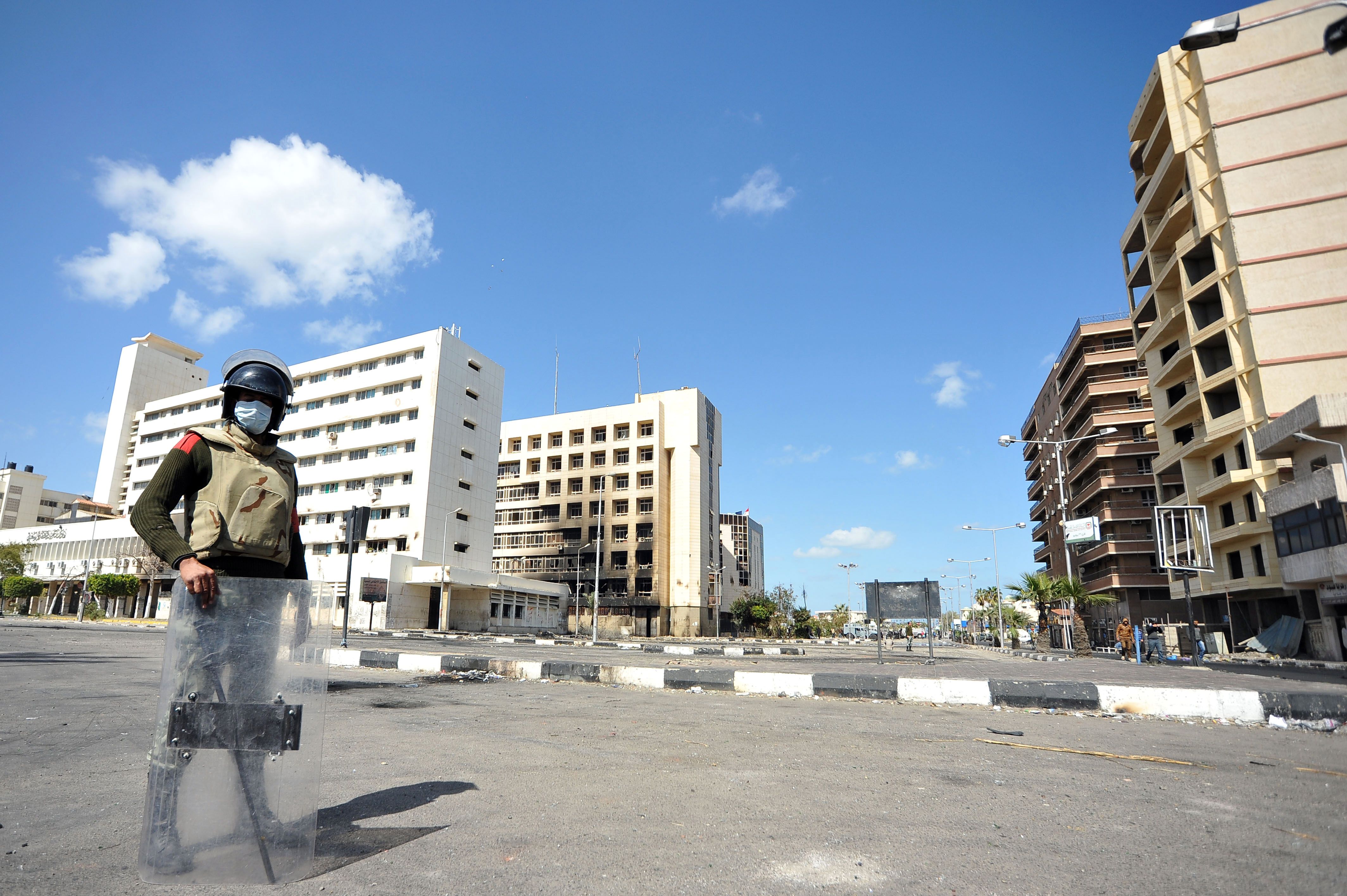By AFP
CAIRO: Fridays in the Middle East are notable for the mass observance of midday prayers, but street protests have become just as common since the wave of uprisings began washing away dictators and autocrats.
That Friday feeling is becoming crucial in many countries across the region, where opposition groups are calling for political reforms and regime change in the wake of the uprisings in Tunisia and Egypt.
In Cairo, a “save the revolution” demonstration by the same groups that started it is planned for Tahrir Square, epicenter of the revolt that ousted president Hosni Mubarak in February.
The Youth Revolution Coalition, an online activist movement that issued the latest protest call, has presented “urgent demands,” among them a “swift judgment” of Mubarak, his family and various members of the former regime.
The group is also calling for a more determined struggle against corruption that must include “more efficient measures to recoup the millions pillaged from the people” during the Mubarak era.
New calls to protest were also issued via the Internet in Syria, where President Bashar Al-Assad disappointed a restive population in a Wednesday speech by neither announcing liberalization measures nor repealing the country’s 48-year state of emergency, a move that had been expected.
“On Friday, all citizens and free men of all faiths (are invited to come out) everywhere for a free Syria,” reads the Facebook page for “Syrian Revolution 2011.”
Human rights groups say dozens of people have been killed and dozens more arrested since protests began on March 15 in Syria’s southern town of Daraa and the main port city of Latakia.
In neighboring Jordan, where last Friday an attack by regime loyalists left one person dead and 160 injured at a pro-reform rally, youth members of the Muslim Brotherhood are now planning a sit-in outside the town hall in Amman.
The loyalists, who have been forbidden from demonstrating within the capital in order to avoid clashes, are not planning to mobilize.
In the Gulf, neither Bahrain nor Oman, which have both witnessed demonstrations in recent weeks, have seen renewed calls to protest.
Spontaneous gatherings, however, could form after Friday’s weekly midday prayers.
In the sultanate of Oman, the army on Tuesday dispersed a handful of protesters demanding reforms who had been staging a month-long sit-in in Sohar, 200 km north of the capital Muscat.
In Bahrain, pro-reform demonstrations from mid-February directed at the ruling Sunni Muslim Khalifa dynasty were led mainly by Shiites, the majority of the population.
The kingdom’s police put a stop to the protest movement in mid-March after the deployment of a joint force from the country’s Gulf neighbors.
Twenty-four people, including four policemen, died in the Bahrain clashes, according to its interior minister.
In Yemen, the Arab world’s most impoverished state, embattled President Ali Abdullah Saleh has called for a show of force from his supporters on Friday, while his opponents continue to mobilize.
According to official news agency SABA, “religious dignitaries, tribal chiefs, civil society representatives, the youth and the farmers have started flowing into the capital Sanaa to take part” in a day of support for Saleh, who has been isolated after a series of high-profile defections.
Protesters camping on Sanaa’s University Square have proclaimed Friday “Welcome Day,” but abandoned their original plan to march on the presidential palace fearing violence.
